Estimated reading time: 12 minutes
Has it ever happened to you that, amidst the tranquility of a scorching afternoon, you suddenly become aware of an unusual ‘whooshing’ noise echoing from your air conditioner? One moment, your air conditioning unit is humming along efficiently, keeping your home comfortably cool, and the next, it sounds like you’ve got a gentle but persistent windstorm sealed within its mechanical heart. With the beating sun outside and the frosty, conditioned air in danger of disappearing, the situation can be alarming, prompting sweat beads to pop up on your forehead. Yet, fret not, dear homeowners, because you’re not alone in this and we have got you covered!
Air conditioners, like any sophisticated piece of machinery, are likely to produce some sounds during their operation. However, discerning normal operational sounds from those indicating a possible malfunction is not as complex as it may seem, and is indeed invaluable. A well-tuned ear could save you a bundle in repairs and energy costs, not to mention, help prevent the inconvenience of an unexpected system failure at the peak of summer. In our issue at hand, the unanticipated ‘whooshing’ noise, distinguishing it, understanding its causes, and knowing how to tackle it effectively, could preserve your air conditioner’s lifespan, maintain its efficiency, and keep your home cool and comfortable. Stick around, and you’ll soon be a whizz at interpreting and rectifying such malfunctions, even in the sweaty heart of summer!
Table of contents
Basic Air Conditioner Components
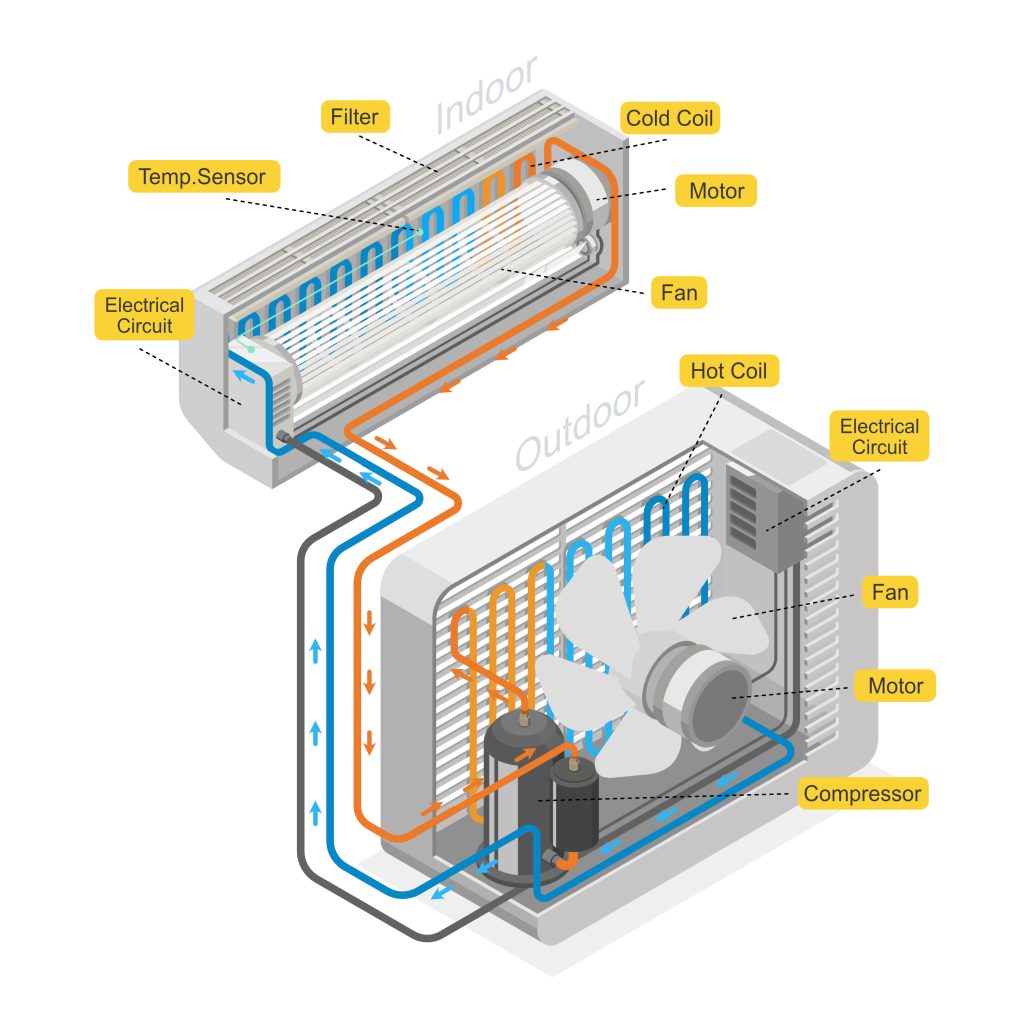
1. Compressor: The heart of your air conditioner, it’s responsible for circulating refrigerant between the indoor and outdoor parts.
2. Evaporator Coil: Located inside your house, it absorbs heat from the air in your home.
3. Condenser Coil: Found outside your home, this dissipates heat absorbed from your house into the outdoor air.
4. Fan: It helps in moving the warm air from your house to the evaporator coil to be cooled, and in the opposite direction, from the condenser coil back to the room.
5. Air Filter: In addition to improving your indoor air quality, the air filter prevents dust and debris from gunking up your air conditioner.
6. Thermostat: This is the control center that sets the preferred temperature for your home.
7. Ductwork: These large, usually metal, tubes carry the air to and from your rooms.
These components work together in an intricate dance to keep your home comfortable all year round. When your air conditioner makes strange noises, it can often point to a disruption in this well-choreographed dance.
Typical Operating Noises
- Humming: During normal operation, your air conditioner should produce a steady, low humming sound. This is the sound of the fan and the compressor working and nothing to be concerned about.
- Clicking: It is normal to hear a few clicks when the system starts up and shuts down. This is the sound of the electrical components coming into action.
- Bubbling or Gurgling: When your air conditioner is off, you may hear this sound. It’s just the refrigerant moving through the lines – a normal part of the air conditioner’s operations.
- Whooshing: This is the sound of the air moving through the ducts. Generally, it’s just a low, whooshing sound. But when the whooshing sound becomes more pronounced, it could indicate some problems. We’ll delve into the causes and solutions for this in the following sections.
Next time your air conditioner starts up, take a moment to listen. The sounds your AC makes can greatly assist you in recognizing when something unusual is amiss. You’ll be in a better position to identify, diagnose, and possibly troubleshoot your air conditioner’s whooshing noises. Don’t fear the whoosh, understand it!
the Whooshing Noise
But where to start when it comes to identifying the notorious whooshing sound? Think of the sound your air conditioner makes when it starts up or shuts down—a brief whoosh that fades away. Now, imagine that sound continuing non-stop or at random times, like the ocean trapped inside your unit. It’s somewhat soothing until it becomes suspiciously recurring. That, my friends, is the distinctive whooshing noise we’re tackling.
Causes of the Whooshing Sound
As unsettling as the whooshing may be, it’s merely your air conditioner’s way of pleading for a little attention. Several reasons could contribute to this sound. Let’s dive into each one:
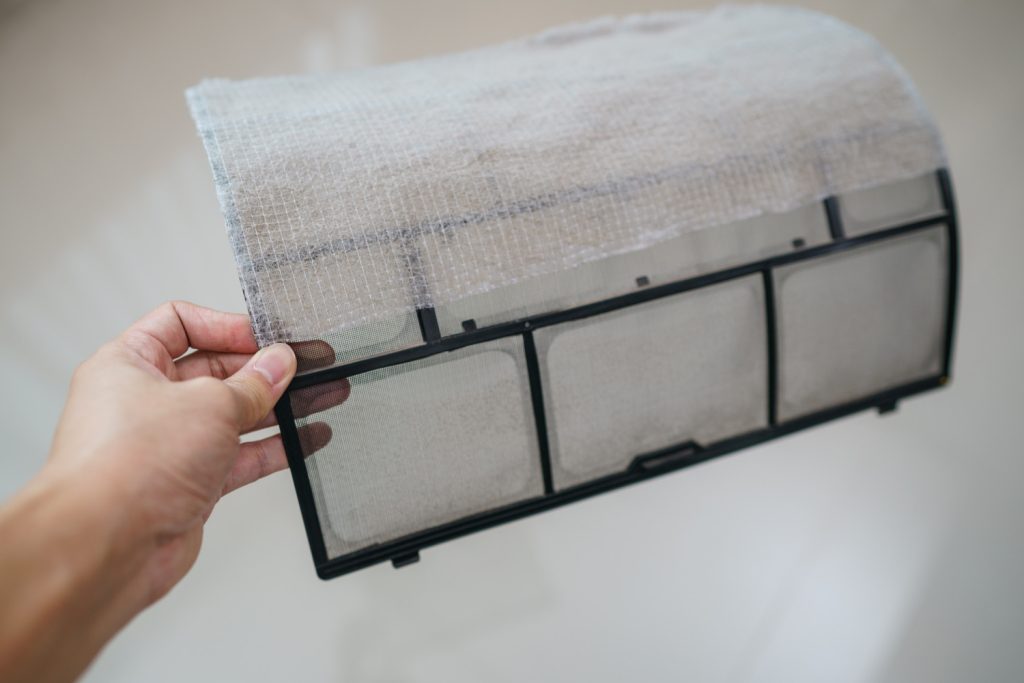
- Air Filter Issues: The first potential villain in our whooshing saga could be a clogged or blocked air filter. The filter’s main role is to remove particulate matter from the air before it circulates through the system. However, if not changed regularly, it can get blocked. This means that the air attempts to force its way past the filter, creating the whooshing noise.
- Leakage in the Ductwork: The whooshing sound can also be a tip-off to an air leak. The ductwork system can develop leaks over time due to age, improper installation, or physical damage. If air is escaping through these holes, it can cause a whooshing noise and affect the performance of your unit.
- Low Refrigerant Level: Our next suspect is the refrigerant level. This substance absorbs the heat from your home and releases it outside. When the refrigerant level is too low, the air conditioner needs to work harder, which can cause the whooshing sound. A low refrigerant level often indicates a leak, which needs to be addressed promptly to prevent further damage.
- Dirty Indoor or Outdoor Coil: Finally, the whooshing noise could be the result of dirty coils. Over time, the indoor or outdoor coil can become dirty or blocked. When the airflow across the coil becomes restricted, the system can produce the whooshing noise. It’s a subtle reminder that your unit could use a nice clean-up.
Stay tuned for the next segment, where we’ll explore how recurrent whooshing noise can affect your air conditioner’s system.
How Whooshing Noise Affects Your System
Like a warrior at the front line, your air conditioner is ceaselessly battling extreme weather conditions to create a comfortable living space for you. However, constant whooshing sounds can be a distress signal from your AC, indicating it’s under more strain than it can take. Ignoring the problem could lead to more serious issues, dramatically shortening the life of your AC unit and calling for expensive repairs or even outright replacement.
Potential Long-Term Damage
For instance, if the sound is due to a dirty filter, it prompts the air conditioner to work harder to cool your home, causing the system to wear out much faster. Likewise, refrigerant leaks or blocked coils aren’t just noise producers—they can also wreak havoc on the compressor, the heart of your air conditioning system. Over time, the strain brought on by these issues can lead to the compressor’s failure, a fairly expensive component to replace.
Reduction in Efficiency and Performance
We all crave the rush of cool air when we step inside on a sizzling summer’s day, but a whooshing air conditioner could hamper that longed-for relief. Persistent noise is often a symptom of a compromised, less efficient system. When the AC has to labor more than usual, its performance takes a hit—it’s like running a marathon with a heavy backpack. The home doesn’t cool down as quickly or as effectively, and it is often within these lukewarm conditions, you can start to feel the real-world implications of this decrease in performance.
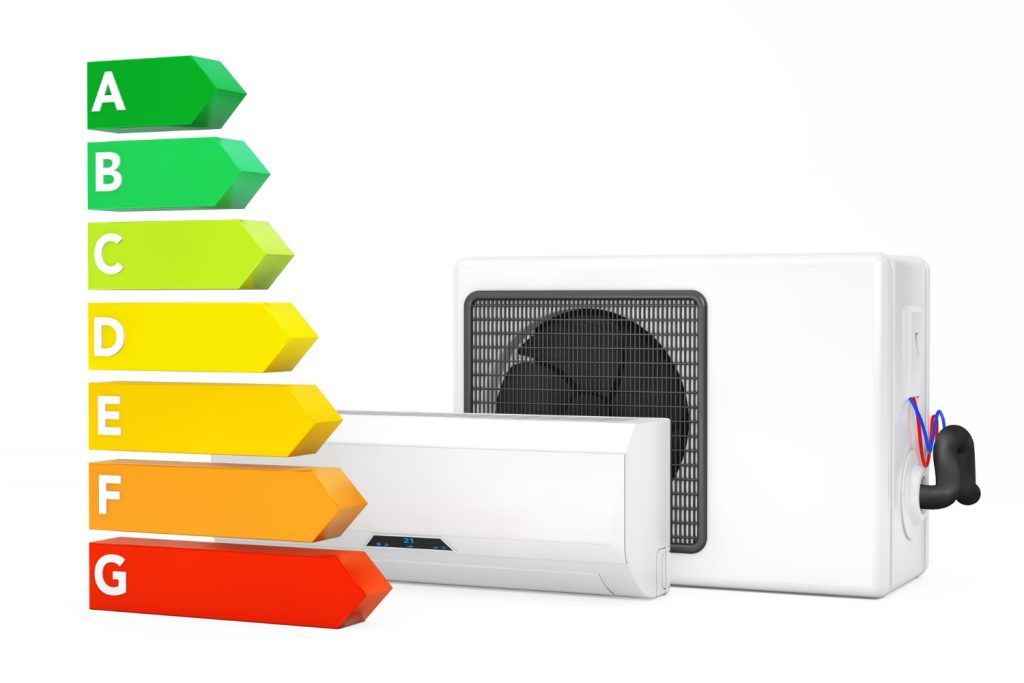
A struggling air conditioner doesn’t only make your spaces less comfortable, it can also stun you with inflated energy bills. When the air conditioner’s efficiency decreases, it uses more electricity to attain the desired temperature, leading to a bigger hole in your wallet. At the end of the day, the whooshing noise your air conditioner is making could be the echo of cash floating out of your bank account.
When to Seek Professional Help
Air conditioners are complex machines, and while some issues might merit a quick DIY fix, others might call for the helping hand of a professional. So, how do you know when it’s time to reach out?
Indicators of serious problems
- Persistent Noise: Whooshing sounds that persist even after you’ve taken steps to remedy them could be a sign of a more serious problem. Even if they’re not immediately damaging to your AC unit, uninterrupted noises can signal significant issues, including electrical problems or even a failing motor.
- Poor Performance: If your air conditioner isn’t cooling your home like it used to, in spite of a clean filter and adequate refrigerant level, there might be a bigger problem at hand. Signs could include a longer timeframe to cool your home or warmer air being expelled.
- Leaks: Water or refrigerant leaks are serious issues that most homeowners are not equipped to handle on their own. These leaks can also create health hazards, especially refrigerants, that are harmful when inhaled.
- Bad Odors: If your air conditioner is emitting a foul or strange smell, it could be indicative of mold, a burnt motor, or other serious problems that need to be addressed immediately.
While it’s natural to want to save money where possible, trying to manage certain AC issues on your own can end up costing you more in the long run. A certified professional, on the other hand, not only has the skills and tools to address an array of problems but another invaluable asset — experience.
Professional repair services are trained to spot potential issues before they escalate, saving you from future catastrophic failures or more costly repairs. They are also well-versed in the latest safety standards, meaning they can mitigate risks to your home and your family.
Professionals can also provide routine maintenance on your air conditioner, prolonging its life, enhancing performance, and ensuring better energy efficiency. While you’ll pay for the service, the savings on your utility bill and the avoidance of more serious problems can be more than worth the investment.
DIY Solutions to Silence the Whooshing Noise
Whether you’re a seasoned DIY enthusiast or a fledgling homeowner finding your feet, these simple solutions may just help you to silence that annoying whooshing noise and return your home to its state of peaceful tranquility.
Changing the Air Filters
A congested air filter can create havoc within your air conditioning system. As air struggles to move through the filter, it often results in a whoosh sound. Luckily, changing the air filter is a job that even the most inexperienced homeowner can handle.
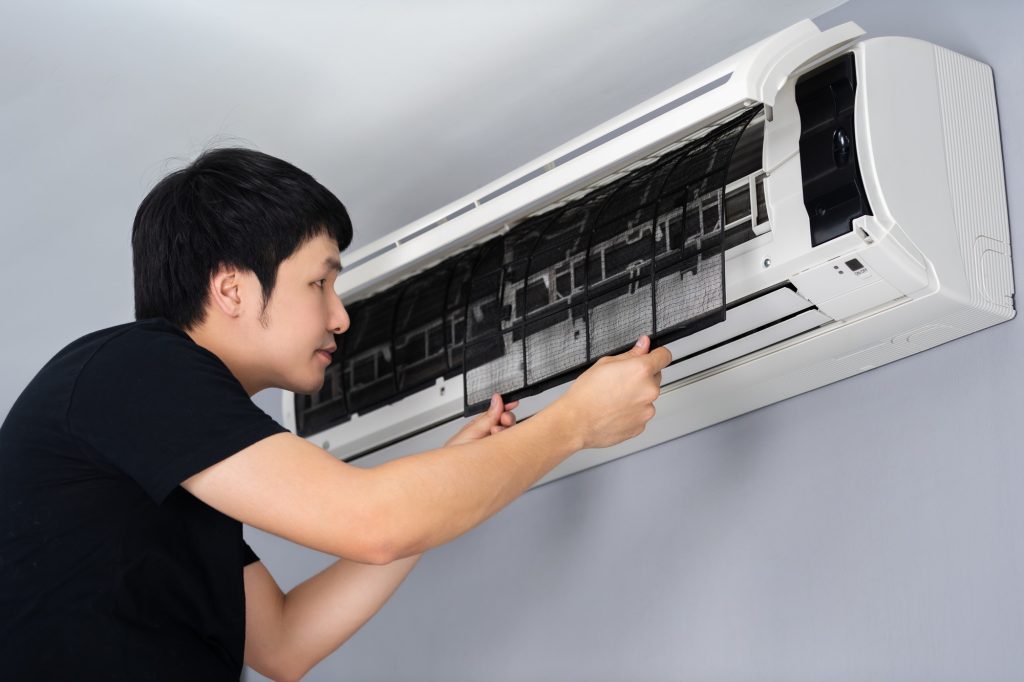
First off, be sure to purchase the correct filter. Your air conditioner’s specifications or user manual will direct you to the right size and type. Once you have the filter, simply remove the old one (usually found in the return air vent or inside the air handler), and replace it with the new one. Consider writing the date of replacement somewhere on the filter so you can keep a record of when it was last changed.
Cleaning the Coils
Dirty coils can also cause a whooshing sound, as the system must work overtime to absorb or release heat. Cleaning your air conditioner coils is slightly more complicated, but still within the range of a determined DIYer.
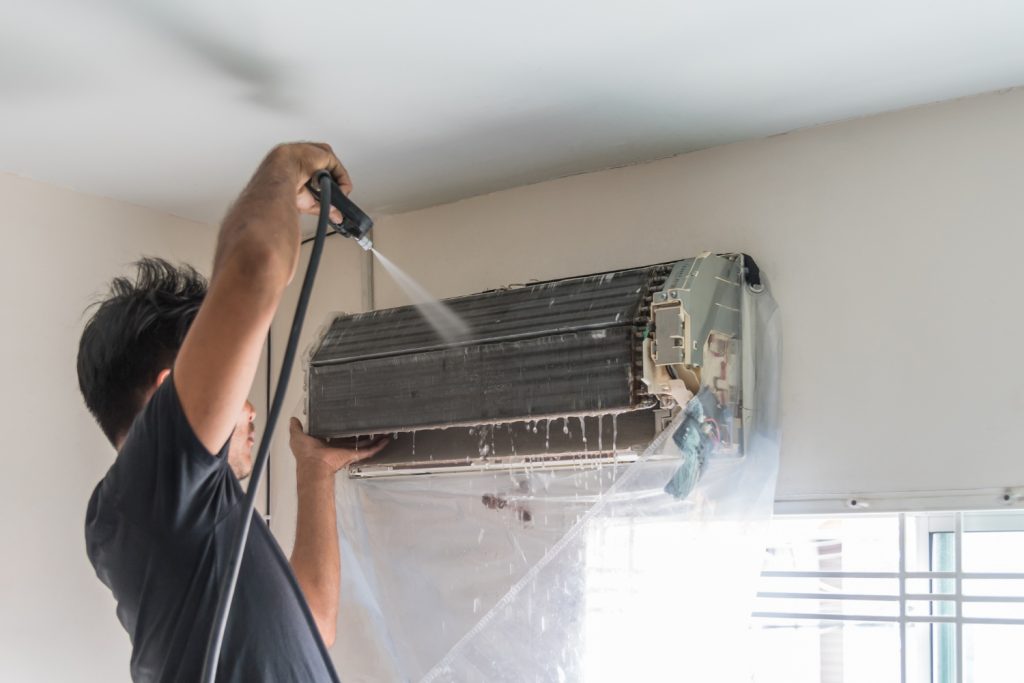
You will need to clean both the condenser coils (found in the outdoor unit) and the evaporator coils (located in the indoor unit). Turn off the power supply first to ensure safety. After removing the protective casing, you can clean the coils using a soft brush or a special coil cleaning solution following the manufacturer’s guidelines.
Checking for Duct Leakage
Air leaking from the ductwork can cause the air conditioner to make a whooshing sound. Identifying a leak may sound like a tough task, but it’s not as hard as it may seem. Turn on your air conditioner and feel around the ductwork. If you notice a cold breeze in places that should not be exposed to the air, you probably have a duct leak.
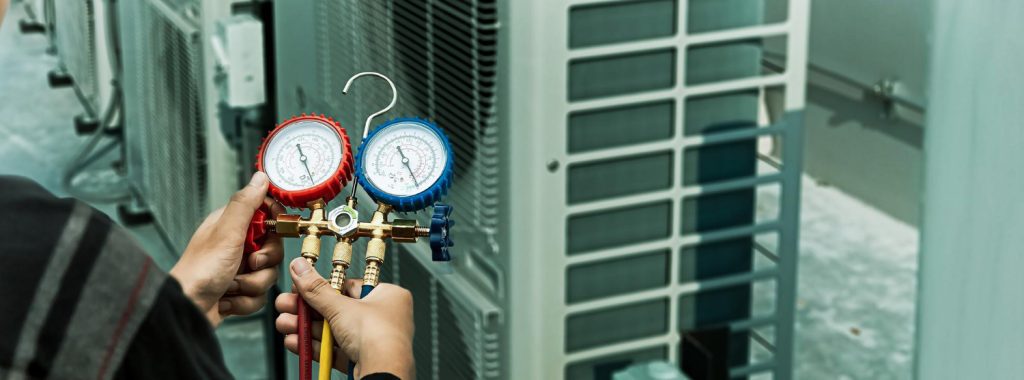
You can seal the leak using a duct sealant or a metal-foil tape. Just ensure the duct’s surface is clean and dry before the application. For larger leaks, it’s advisable to consult a professional to ensure the job is done correctly and safely.
What to Do Next?
Maintaining your air conditioner is about preserving its efficiency while also preventing unnecessary wear and tear. Regular check-ups of your system can prove to be your magic wand that keeps those disconcerting AC noises at bay.
Start with the air filters; this little maintenance routine works wonders. Aim to change or clean your filters every 1-3 months, depending on the amount of usage and if you have pets. This will ensure smooth airflow and prevent your AC from working overtime.
Next, keep your outdoor unit debris-free. Regularly clear any leaves, branches or dirt that might block the unit. When the surrounding area of your outdoor unit is clean, it reduces the chance of dirt making its way into your system and causing that whooshing sound.
Another useful habit to adopt is to regularly check your ductwork for any leaks. Such issues can often go unnoticed but can be the root cause of not only the whooshing noise but also an increase in your energy bills. If you spot any leaks, ensure they are professionally fixed.
Final Thoughts
Maintenance, both routine and timely, forms the backbone of a top-notch and efficient air conditioner. Routine, scheduled checks, and repairs alleviate potential, emerging, and existing noise problems, keeping your AC’s hum to a pleasant, almost indiscernible soundtrack of your home. Now, that, dear friends, is surely, the cooling, calm, and collected, and, dare I say, quiet, ‘whoosh’ you’d love to hear, right?






